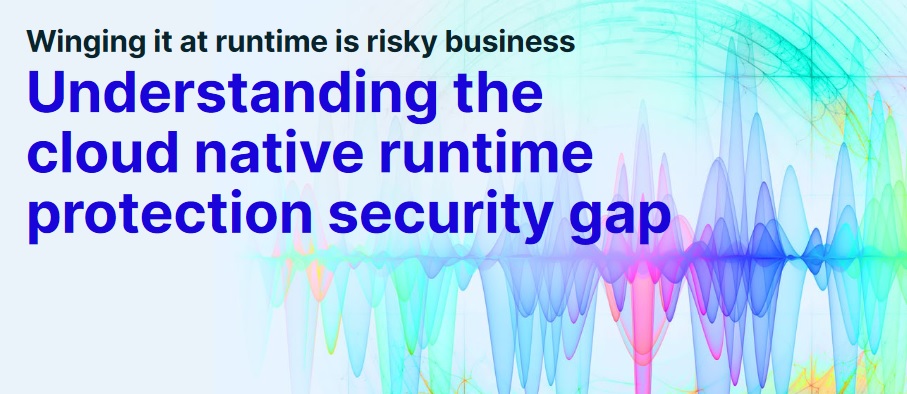Opsera announced that two new patents have been issued for its Unified DevOps Platform, now totaling nine patents issued for the cloud-native DevOps Platform.
Only 3% of respondents recognize that a container, in and of itself, is not a security boundary, indicating that the default security capabilities of containers are overestimated, according to the 2021 Cloud Native Security Survey from Aqua Security.
This result is especially alarming in conjunction with the fact that only 24% of respondents have plans in place to deploy the necessary building blocks for runtime security.

"The results of the survey showcase a staggering knowledge gap that leads to an underinvestment in a critical part of full lifecycle, end-to-end security for cloud native applications," said Amir Jerbi, co-founder and CTO at Aqua. "When practitioners fail to implement a holistic approach with protecting their workloads at runtime, they are opening up their environments to attackers, since even the most complete ‘shift left’ vulnerability and malware detection cannot prevent zero-day attacks and administrator errors."
The report demonstrates the difficulty and complexity of understanding key cloud native security risks, along with how to counteract them. Despite recent reports showing the increased sophistication of cloud native attacks, only 18% of respondents realize they are at risk for zero days in containerized environments.
Confidence vs. Reality
While 32% of respondents were confident in overall holistic runtime security protection, detailed questions revealed that less than 23% of respondents in fact had the necessary building blocks of runtime security in place.
Supply Chain Risk
A knowledge gap around workload protection has led to a striking number of practitioners who believe they are protected from supply chain attacks in production, but in fact are not. While 73% believed that they could stop software supply chain attacks evading static analysis, there was an apparent misconception about the role of runtime security in achieving this protection.
"There is a concerning overconfidence in the perceived ability to prevent supply chain attacks. The reality is that runtime security is essential because sophisticated supply chain attacks evade static analysis. We see unnamed attackers use legitimate vanilla images to download malicious elements at runtime, Kinsing malware that only downloads in runtime, and attackers like Team TNT who hide their malicious communications attacking our honeypots on daily basis," said Jerbi.
Increasing Container Threats
In a recent threat report, Aqua found that attackers are becoming more proficient at hiding their methods and evading static scanning, while threats to container based environments have become more dangerous and more varied. Over a six-month period, Aqua observed honeypots being attacked 17,358 times, representing a 26% increase from just six months previously. The increasing volume of attacks demonstrates the importance of implementing holistic cloud native security, including runtime protection, in order to protect against attackers who have evaded detection and have access to the production environment.
"Holistic cloud native security should be every practitioner’s goal. It is not just about runtime security or any other one focus area. It is about ensuring the entire application life cycle is covered, from the build to the infrastructure and the workloads," said Jerbi.
Methodology: The study surveyed 150 cloud native security practitioners and executives from IT, Security and DevOps teams, across sectors including financial services, technology, healthcare and pharma, industrials, and retail among others. Participants were from the United States, Canada, United Kingdom, Germany, Australia and India.
Industry News
mabl announced the addition of mobile application testing to its platform.
Spectro Cloud announced the achievement of a new Amazon Web Services (AWS) Competency designation.
GitLab announced the general availability of GitLab Duo Chat.
SmartBear announced a new version of its API design and documentation tool, SwaggerHub, integrating Stoplight’s API open source tools.
Red Hat announced updates to Red Hat Trusted Software Supply Chain.
Tricentis announced the latest update to the company’s AI offerings with the launch of Tricentis Copilot, a suite of solutions leveraging generative AI to enhance productivity throughout the entire testing lifecycle.
CIQ launched fully supported, upstream stable kernels for Rocky Linux via the CIQ Enterprise Linux Platform, providing enhanced performance, hardware compatibility and security.
Redgate launched an enterprise version of its database monitoring tool, providing a range of new features to address the challenges of scale and complexity faced by larger organizations.
Snyk announced the expansion of its current partnership with Google Cloud to advance secure code generated by Google Cloud’s generative-AI-powered collaborator service, Gemini Code Assist.
Kong announced the commercial availability of Kong Konnect Dedicated Cloud Gateways on Amazon Web Services (AWS).
Pegasystems announced the general availability of Pega Infinity ’24.1™.
Sylabs announces the launch of a new certification focusing on the Singularity container platform.
OpenText™ announced Cloud Editions (CE) 24.2, including OpenText DevOps Cloud and OpenText™ DevOps Aviator.
Postman announced its acquisition of Orbit, the community growth platform for developer companies.




